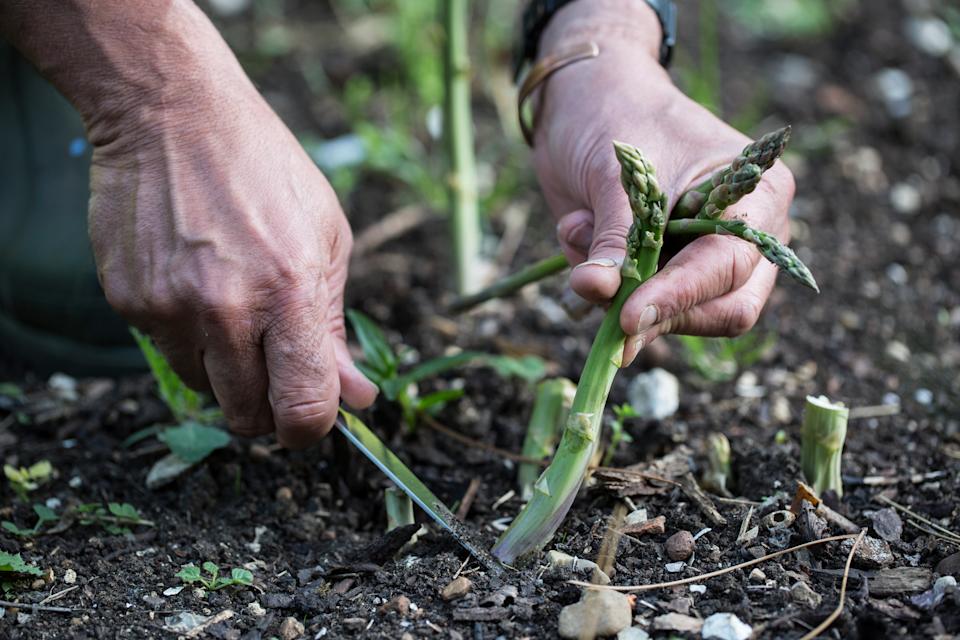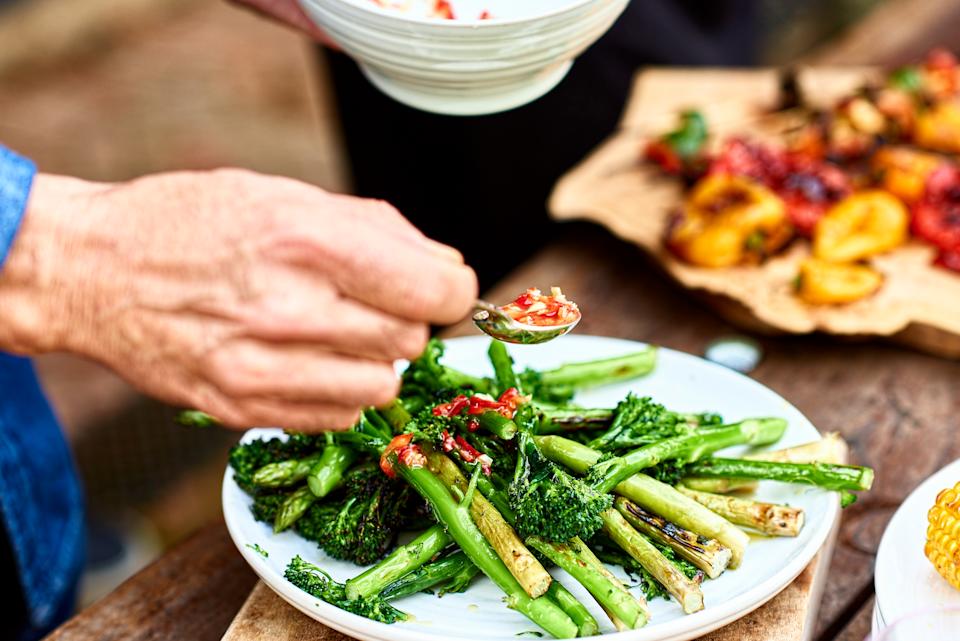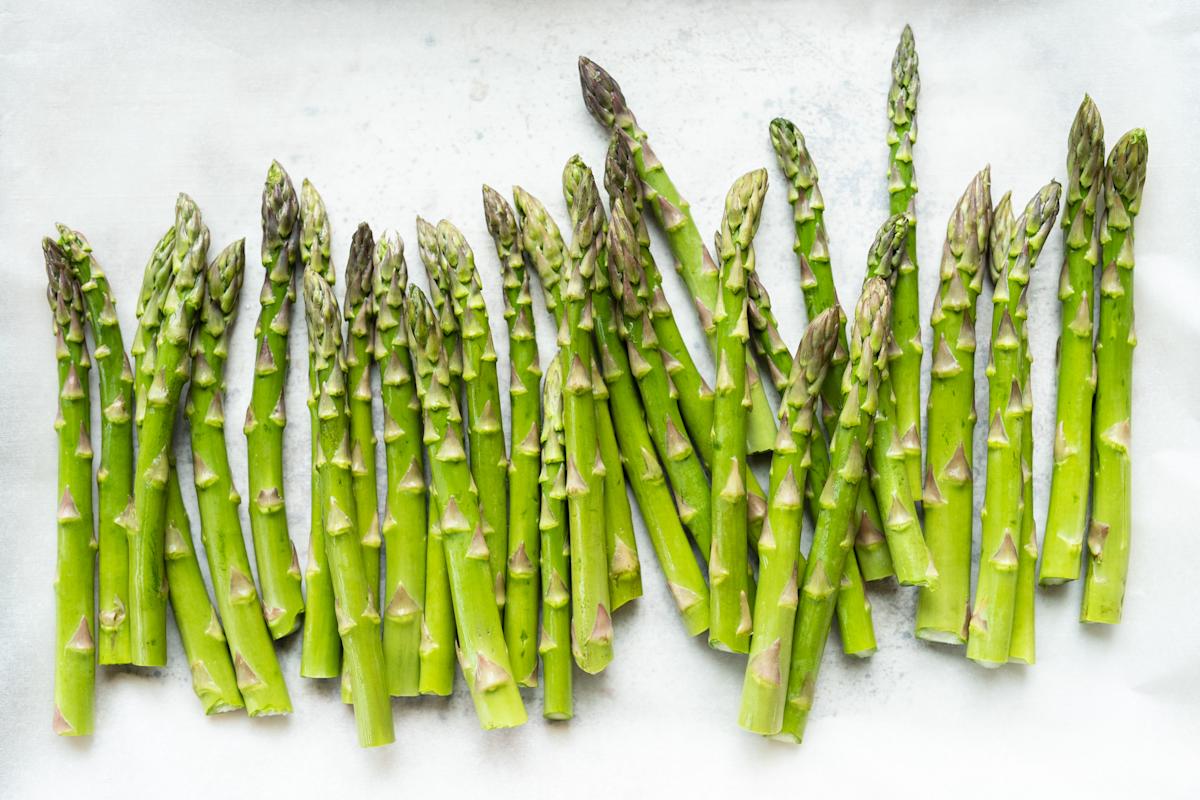Eating seasonal fruit and vegetables offers numerous benefits – not just in terms of freshness and flavour, but also nutritional value. These ingredients also tend to be cheaper when they are in season.
While you may have seen asparagus in your local supermarket in recent weeks (climate change impacts growing seasons, and potentially the taste, depending on the weather conditions), it has technically only just come into season today, on St George’s Day, as is tradition. The season runs through to the end of June.
Here, we take a look at the health benefits of asparagus, and how to prepare and cook the green vegetable.
Six health benefits of asparagus
Asparagus season is from late April to the end of June. (Getty Images)
1. It’s packed with antioxidants
As is the case with a lot of other green vegetables, asparagus is high in antioxidants, such as vitamins E and C, glutathione and others. These ingredients can also have anti-inflammatory effects.
2. Can help lower blood pressure
Due to the potassium content in asparagus, the seasonal vegetable can also help reduce blood pressure – a known risk factor for strokes and heart disease.
3. Improves digestion and gut health
High in fibre, asparagus is also great for digestion. It also contains inulin, which is a type of fibre that acts as a prebiotic, promoting a healthier gut microbiome.
4. Can reduce cholesterol
Again due to its fibre content, asparagus can help reduce levels of cholesterol by binding the cholesterol in the digestive system and helping the body eliminate it.
5. A good source of potassium
Vital for bodily function, potassium is needed to help keep the heart beating regularly and the muscles to work properly. It can also support healthy blood pressure.
6. May help protect against cancer
Research shows that foods high in folate, such as asparagus, can help protect against certain cancers, such as pancreatic cancer.
Why asparagus makes your wee smell
Asparagus contains asparagusic acid, and when digested, the asparagusic acid breaks down into sulphurous byproducts, which in turn can make your pee smell… funky.
Not everyone is affected by strong-smelling urine, though. Depending on genetic variations, your ability to smell the difference changes. Researchers have put it down to anosmia – partial or full loss smell.
How to prepare and cook asparagus
There are a number of ways to prepare and cook asparagus. (Getty Images)
Preparation
-
First of all, you want to trim off any woody ends
-
Then you want to wash the asparagus thoroughly under cold water, to get rid of any dirt
-
You may also wish to blanch the spears before cooking, adding them to a bowl of cold water filled with ice. This helps to retain their colour and flavour after cooking. It also means the tips are less likely to burn or dry out during the cooking process
Cooking
There are a number of different ways to cook asparagus, including:
-
Roasting: Drizzle some olive oil over the vegetable with a pinch of salt and pepper, and cook in the oven at around 200C for 12 minutes until tender
-
Griddling/frying: Coat the asparagus stems in a bit of olive oil, salt and pepper before adding to the pan for around one to two minutes
-
Steamed: Add the asparagus spears to a steamer basket and cover for around two to four minutes
Read more about food and nutrition
